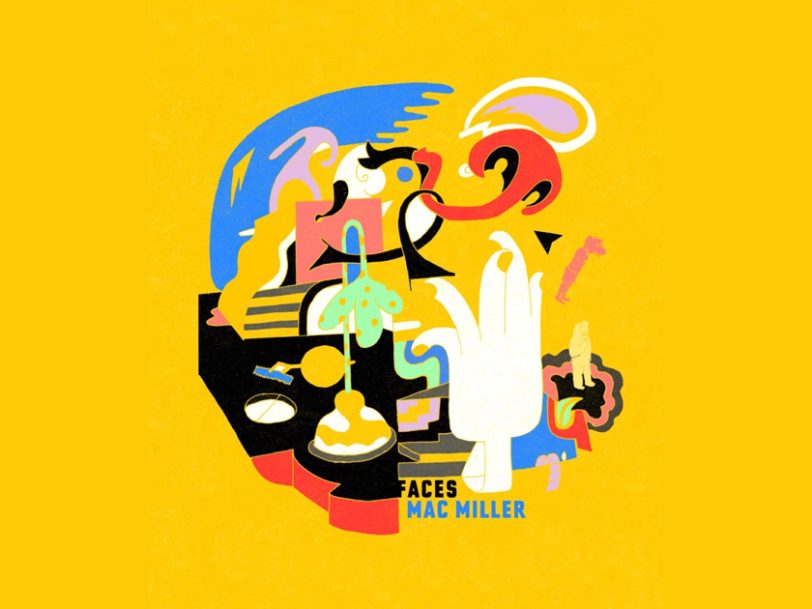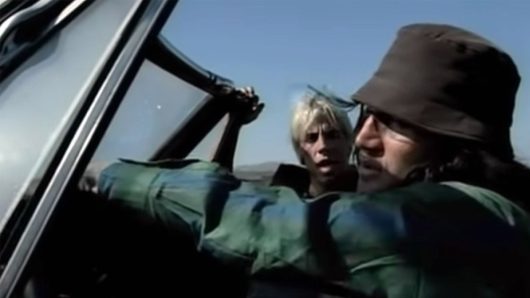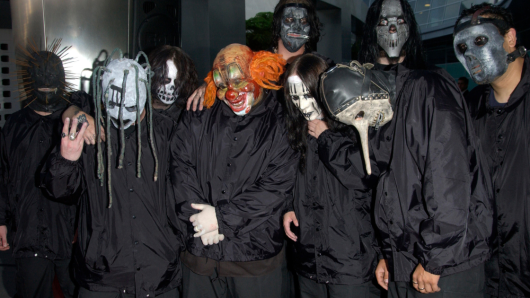No longer bound by the commercial obligations that defined his early years, 22-year-old rapper Mac Miller was keener than ever to go from frat-boy wonder to underground-rap polymath when it came to recording what would be his 11th mixtape, Faces. As he worked in the studio, an open-door policy brought in a rotating cast of rising Los Angeles hip-hop stars, with Miller immersing himself in an exploratory jazz-rap fusion sound to make the most of his free time. As lyrics poured out of him with diaristic candour, the rapper was finally able to allow his talents to flourish as he scouted around for a new record deal.
It was during this interim period that he released Faces – a darkly introspective and wildly inventive 24-track mixtape issued as a free download in May 2014. An unvarnished journey into Miller’s personal struggles with substance abuse and mental health, Faces allowed the multitalented rapper/producer to freely experiment with jazz-inspired instrumentation, psychedelic textures and brutally honest lyricism that gave listeners a glimpse into his frenetic mindset.
Here, then, is the story of how Faces found Mac Miller in the grip of a metamorphosis, and how he emerged with a jazz-rap masterclass that fans still cherish to this day.
Listen to ‘Faces’ here.
The backstory: “I felt like I could really grow into my own creatively”
By 2014, Mac Miller had been released from the label Rostrum Records and was now a free agent. As an independent artist, the Pittsburgh-born rapper had already built a loyal fanbase and had been enjoying strong sales, playing over 200 shows a year and just wrapping up a three-month tour across the US, as well as a two-month European tour supporting Lil Wayne. “For the last few years, he had ridden this incredible wave of success,” Miller’s producer Josh Berg later said in The Book Of Mac. “But that success came at a cost.”
Despite his extraordinary commercial achievements to date, Miller’s rise to fame had ruffled some feathers among music critics who seemed intent on ignoring his burgeoning abilities. As a teenager, Miller had pigeonholed as a “frat rapper”, lumped in with the likes of Asher Roth for delivering stoner party raps celebrating weed and bro culture. For better or for worse, he had been done a great disservice by being tarred with that brush.
- Best Female Rappers: 20 Women In Hip-Hop Who Deserve Recognition
- ‘Dying To Live’: Behind The Album That Secured Kodak Black’s Bid For Immortality
- ‘Heart Break Kodak’: Shining A Light On Kodak Black’s Dark Love Letter
However, Miller’s inner circle knew there was far more to him than that. Not only were his lyrics growing deeper and more introspective, but his musicality was beginning to set him apart from his peers. A keen multi-instrumentalist who had learned to play guitar and piano from a very young age, Miller had recently embarked on side projects under pseudonyms such as Delusional Thomas and Larry Lovestein, using them as vehicles to explore his jazz-leaning inclinations. Additionally, his 2013 releases, the mixtape Macadelic and his second album, Watching Movies With The Sound Off, found him flirting with psychedelia, proving that he was eager to move beyond the frat house.
Without the pressures of a label demanding he maintain a certain image, Miller could now focus more intensely on making music he felt truly passionate about. “It felt like it was my own world, that I felt like I could really grow into my own creatively,” the rapper later said in a short film uploaded to his YouTube channel. “Just kind of find myself through the music I was making.” Set loose from all constraints, Miller was ready to evolve.
The recording: “He was intending to lock himself inside the studio and make music every day”
Settling down at his pad in Los Angeles, near the gentle hum of a swimming pool, Mac Miller began recording Faces in his home-built studio, The Sanctuary – often nicknamed “The Red Room” – a haven of creativity that has since acquired almost mythical status. The smell of scented candles filled the air while a wooden Buddha head watched over proceedings, as numerous up-and-coming rappers such as Ab-Soul, Earl Sweatshirt, Da$h, Schoolboy Q, Vince Staples and Tyler, The Creator dropped by to slouch on beanbags, ready to chip in with freestyles. “If all goes according to the plan and we’re all legends at the end of this, that room is like a huge thing” Miller later said. “The Sanctuary is like the most important thing that ever happened to me.”




